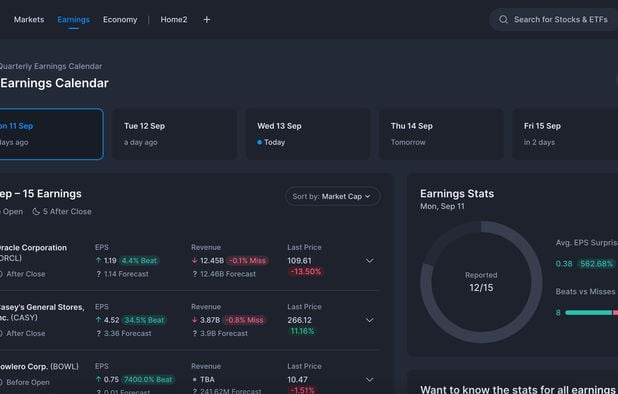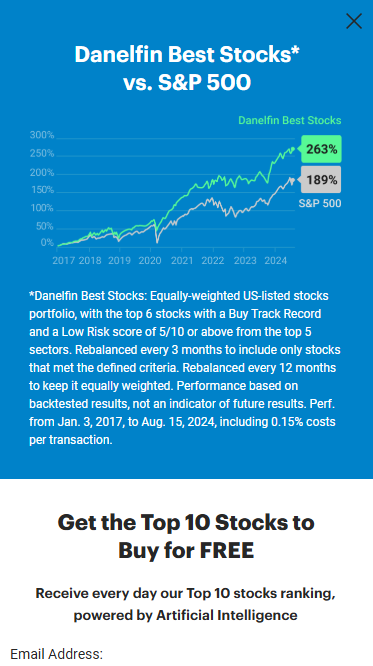20 Top Ideas For Selecting AI Stock Trading Platform Sites
20 Top Ideas For Selecting AI Stock Trading Platform Sites
Blog Article
Top 10 Ways To Assess The Support Provided By Customers Of Ai Trading Platforms That Predict And Analyze Stocks.
When choosing a trading platform that makes use of AI to forecast or analyze stocks and market trends, customer service is a crucial aspect. Support that is prompt and reliable can be a major factor in resolving issues, maximizing the efficiency of the platform, and also ensuring smooth trading. Here are 10 top ways to evaluate the customer support provided by these platforms.
1. Evaluation of Support Availability
24/7 Support: Find out whether the platform provides round-the-clock assistance. This is crucial particularly when trading on international markets.
Business hours: If you don't have 24/7 support, be sure that support is available for you during trading hours.
Holiday coverage: Verify whether support is offered during weekends, holidays, or closing of markets.
2. Test Response Times
Initial response. Test your support by contacting them with a question.
Think about the time it will take to find solutions rather than just acknowledging them.
Live chat: If live chat is enabled check its effectiveness and responsiveness.
3. Examine Options for Support
Multiple channels: Check that the platform is compatible with different channels, including email, telephone, livechat or social media.
Preferred channel: Check if the support channel you prefer (e.g. telephone, chat) is accessible and trustworthy.
Self-service solutions are available Find a comprehensive FAQ, a community forum or a complete knowledgebase to resolve your issues quickly.
4. Evaluate the quality of support
Support agents should be educated about trading platforms, technical issues and platforms.
Problem-solving: Assess whether support agents can effectively resolve complicated issues or escalate them appropriately.
Professionalism: Make sure that the interactions with support are professional, courteous and efficient.
5. Find Account Managers who have a passion for their job.
Support Premium: Verify if the institutional user or plans with higher tiers have access to account managers.
Account managers that provide proactive and tailored assistance.
Building relationships - Make sure that account managers can be reached and develop long-term relations with users.
Examine the supporting documents
Knowledge base: Ensure the platform is well-organized and searchable knowledge base with tutorials, guides, and troubleshooting tips.
Video tutorials: See whether there are any video tutorials available.
API documentation. If you're a programmer, you should check whether the platform has a detailed and precise API documentation.
7. Assess Community and Peer Support
User forums: Find out if there is an active community of users or forum on the platform where users can discuss tips and ideas.
Social media groups: Search for groups on unofficial social networks (e.g. Reddit. Facebook. LinkedIn), where users discuss the platform.
Community engagement: Find out whether your team from your platform actively participates in discussions or forums in the community.
8. Evaluate Escalation Processes
Escalation of issues There should be an appropriate procedure in place to escalated unresolved problems to management or support levels.
Follow-up - Verify whether the support team is in touch with you once you've resolved an issue.
Feedback loops: Verify the ability of the platform to collect user feedback to improve the support service.
9. Test Support for Critical Situations
Market volatility: Call support during periods of high-volatility and evaluate their receptivity.
Technical issues: Simulate a tech issue (e.g. login issues or data discrepancy) to see how support responds.
Trade execution: Determine whether the support team is able to help with urgent issues in trade (e.g. delayed execution, orders that fail).
Reviews of User Feedback
Online reviews: Use platforms such as copyright G2 or Reddit to read user reviews and measure the overall satisfaction.
Search for testimonials and case studies that focus on positive experiences.
Check the platform to see the way it handles complaints, negative feedback and customer support.
Bonus Tips
Support during trial period Try the support of the platform during the free trial or demo period to evaluate the quality of support.
Assistance for your language: If English is not your first language, it is best to check to see if English is supported.
Training and Onboarding: Find out whether the platform has onboarding or training sessions to help new users get up and running.
With these suggestions You can easily evaluate the support provided by AI platforms for predicting and analyzing stocks and ensure that you select a platform that provides prompt, reliable and efficient assistance. A strong customer service can improve your overall experience and allow you to get the most out of the features of the platform. Check out the top ai investing info for site recommendations including best ai stock trading bot free, best ai trading software, ai trading, ai investment app, incite, incite, chart ai trading assistant, ai stocks, chart ai trading assistant, ai stock picker and more.
Top 10 Tips For Assessing The Scalability Ai Technology For Predicting And Analyzing Trading Platforms
It is crucial to evaluate the performance and scalability of AI-driven trading and stock forecasting platforms. This will guarantee that they can cope with the increasing volume of data, market complexity, and the demands of users. Here are 10 best strategies for evaluating scalability.
1. Evaluate Data Handling Capacity
TIP: Ensure that the platform is able to process and analyze large data sets.
Why: Scalable systems must handle data volumes that are increasing without affecting performance.
2. Real-time testing of processing capabilities
See if your platform can handle streaming data in real time, like live stock quotes, or breaking news.
The reason: The immediate analysis of trading decisions is crucial because delays could lead to you missing out on opportunities.
3. Check Cloud Infrastructure for Elasticity
Tip: Determine if the platform makes use of cloud-based infrastructure, e.g. AWS or Google Cloud.
Why? Cloud platforms are flexible, and they can be scaled up and down in response to the demand.
4. Assess Algorithm Efficiency
Tip: Check the computational efficiency and the accuracy of AI models for predictions.
Reason: Complex algorithms can be resource-intensive, and optimizing them is crucial to scalability.
5. Study Parallel Processing and Distributed Computing
TIP: Make sure to check that the platform supports parallel processing frameworks or distributed computing frameworks.
Why: These technologies enable more efficient data processing and analysis across multiple nodes.
Review API Integration, and Interoperability
Check out the platform's integration capabilities with APIs that are external to the platform.
Why: The platform is able to adjust to changes in data sources and trading environments due to the seamless integration.
7. Analyze User Load Handling
Try simulating traffic volumes that are high to determine the performance of your platform.
Why: The performance of a scalable platform is not affected by the rise of users.
8. Examine the Model Retraining Adaptability
Tip: Examine how often and effectively the AI models are trained with new data.
Why: Markets evolve, and models must adapt quickly to keep their precision.
9. Check Fault Tolerance (Fault Tolerance) and Redundancy
TIP: Make sure the platform has failover features, and also has redundant systems in the event of software or hardware malfunctions.
Reason: Trading can be expensive Therefore scaling and fault tolerance are vital.
10. Monitor Cost Efficiency
Tips: Calculate the cost of scaling your platform. Consider cloud resources, data storage and computational power.
Why: The price of scaling should not be too high. Thus, it's crucial to find a balance between performance and cost.
Bonus Tip Future Proofing
Make sure the platform supports advanced technology (e.g. quantum computing or advanced NLP), and is able to adjust to changes in the regulatory environment.
These elements can assist you in assessing the potential of AI-based stock prediction as well as trade platforms. They will also ensure they're reliable efficient, reliable and ready to expand, and future-proof. Have a look at the most popular view website on ai options trading for more examples including ai copyright signals, investing with ai, can ai predict stock market, ai stock prediction, best stock prediction website, chart analysis ai, ai stock predictions, best ai for stock trading, chart analysis ai, best ai penny stocks and more.